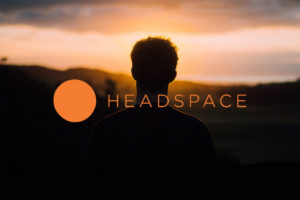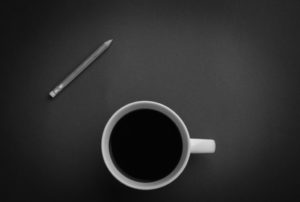Music For Anxiety | 30+ Albums and Playlists For Anxiety Relief
Music is a powerful tool for anxiety relief.
Relaxing music reduces sympathetic nervous system activity, lowers blood pressure, heart and respiratory rate and has positive effects on sleep via muscle relaxation and distraction from thoughts. Upbeat music decreases cortisol, a stress-related hormone produced by the body in response to stress.
Music stabilizes and regulates. The form and structure of music introduce a sense of order to an agitated mind.
Music for anxiety doesn’t have to be wind chimes and Gregorian chants. It can be upbeat, complex, brooding, stimulating — even challenging. It can be familiar, catchy or nostalgic. It can be your favorite music.
All forms of music have some potential for therapeutic effects, although one’s personal taste, culture, mood, and environment inevitably play a role in what an individual might find most effective (and enjoyable) for anxiety relief.
Explore the albums and playlists below to find the music for anxiety that’s right for you.
Music for Anxiety
Classical Music For Anxiety
Listening to classical music has been proven to reduce stress.
When listening to classical music, both the left and right hemispheres of the brain are engaged. The left side analyzes timing, sound quality, texture, and spacial-rhythms. The right investigates the emotional ‘meaning’ and soaks in the harmony.
Maria Joao Piers – Mozart – Piano Sonatas
Also,
- More soothing piano: Anne Queffelec – Ravel: The Complete Music For Piano
- Modern, brooding, and experimental: Max Richter – The Blue Notebooks
- Violin: Joshua Bell – Vivaldi – The Four Seasons
Soundtracks and Film Scores For Anxiety
Film scores not only function as a third emotional dimension in cinema but also possess a tremendous aesthetic value of their own.
Film composers are masters of mood. With a flourish of notes, these masters can spark feelings of hope, anticipation, danger, longing — they must paint with the entire dramatic palette. Some of the most talented composers of the 20th and 21st centuries are the emotional bellows beneath the movies you know and love.
As far as music for anxiety goes, film scores are explicitly designed to take your mind to another place and can offer value far beyond the silver screen.
The Best of John Williams 1969-1999
Also,
- The Best of Hans Zimmer
- Ennio Morricone 2016 – Spaghetti Western Collection
- Forrest Gump Soundtrack
- A Night At The Roxbury Soundtrack
- Your favorite soundtrack
Jazz For Anxiety
Complex, interesting — sometimes challenging. Jazz lends itself to either an active or passive listening experience. Like classical music, jazz can just as readily be enjoyed in the background as you go about your daily activities, or absorbed with intention and scrutiny.
Jazz has a larger musical vocabulary than other genres of music. Jazz incorporates unusual time signatures and conversational call-and-response rhythms.
Playing and composing jazz is a highly artistic endeavor, but just listening to jazz has also been shown to stimulate creativity and has even been shown to support the development of new neural connections in the brain.
Miles Davis – Kind of Blue
Also,
- Keith Jarrett – The Koln Concert
- Louis Armstrong – The Complete Hot 5 and Hot 7 Recordings
- Herbie Hancock – Maiden Voyage
Chart-Toppers For Anxiety
Popular music is energizing. Unlike jazz, pop music is simple and predictable. Both genres have their time and place.
Many popular songs share similar chord progressions, pitch contours, and harmonic rhythms. Common elements of chart toppers are recombined to create new, but familiar, tracks that grab our attention and stick in our brains. These songs are doing something right. It cannot hurt to look rely on the wisdom of the crowd now and again.
1970s-1990s Billboard Pop 100
Also,
Electronic Music For Anxiety
The neurons in your brain communicate via electricity. The pulse of this charged activity is called a brainwave. Electronic music is heavily rhythm-driven. Through repetition, rhythmic music can sync brainwaves to pulse at the same frequency as the rhythm of the music.
Different brain waves are associated with different states of mind:
- Beta waves (14-30 Hz) are associated with an alert and active mind.
- Alpha waves (9-13 Hz) are associated with a relaxed, introspective state.
- Theta waves (4-8 Hz) are associated with the state between waking and sleep or with deep meditation.
- Delta waves (1-3 Hz) are associated with deep unconscious sleep.
In an anxious state, brain waves are chaotic and irregular. Measured on a chart via Electroencephalograph (EEG), an anxious mind will look like chaos. A calm or focused mind will look more symmetrical. Even listening to high BPM electronic music can have a calming effect on the mind because the electrical signal of the brains will take on the regular and orderly pulse of the music.
Odesza – In Return
Also,
Ambient Music For Anxiety
The title track of Marconi Union’s Weightless was actually designed to reduce anxiety.
“Weightless,” arranged by sound therapist Lyz Cooper, starts out at a tempo of 60 beats per minute and gradually falls to 50 beats per minute. The reduction in tempo slows down listeners’ heartbeats in the process. The song uses tones that promote a psychological sense of safety, and it doesn’t have any repeating melodies, so your brain isn’t constantly trying to predict what comes next.
Marconi Union – Weightless
Also,
- Moby – Long Ambients 1. Calm. Sleep
- The Social Network Soundtrack
- Max Richter – Infra
- Binaural Beats Sleep: Soothing Binaural Beats
- Max Richter – From Sleep
Additional Playlists For Anxiety
- Most Relaxing Songs Ever
- Anxiety Relief
- 30 Classical Music Tracks to Make You Smarter
- Studying Music: Piano Music to Make You Smarter
- Songs to Help You Face Depression
Research suggests that music not only helps us cope with anxiety — it can also benefit our physical and mental well being in a host of other ways. Music is used to successfully lower blood pressure, treat brain injuries, reduce physical pain for cancer patients, lessen the effects of dementia, lessen stress for surgery patients, relieve PTSD symptoms for military veterans, thwart chronic migraines, and even reduce asthma episodes. Scientific research on the positive effects of music for anxiety is young but strong.
What songs, artists, and genres do you find helpful for anxiety? Leave your picks in the comments.




